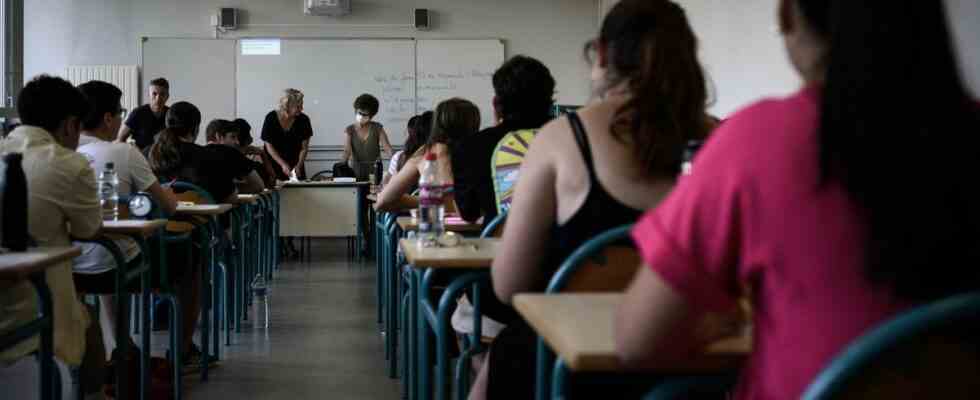This Thursday, more than 1.6 million students will return to general and technological high school. Like every year, new things await them. And some files that pose a problem, according to the teachers’ unions, could also give rise to organizational changes during the year. 20 minutes make the point.
The start of the maths option in 1st
Since the implementation of the high school reform in 2019, math has disappeared from the common core in 1st and final year. Because the discipline is only taught in the form of a specialty. This was criticized by the entire educational community. From this start of the school year, the subject is offered as an option in 1st general to pupils who do not follow specialist education. It will be 1h30 of lessons per week, in order to approach the analysis of encrypted information, random phenomena, evolution phenomena (linear and exponential growth, variations).
In the final year, students who have taken the option will be able to enroll in the complementary mathematics option. But the creation of this option having been announced in June, it would seem that few students have taken it up. In an interview with Release Sunday, Pap Ndiaye also recognized it: “It is not an exceptional success, in particular because it was done late. “For their part, the unions of teachers are skeptical: “We are very far from the return of maths for all”.
In addition, “the challenge for teachers for the start of the school year will be to ensure that students do not abandon this option from the first weeks”, estimates Gwenaël Le Paih, deputy secretary general of the SNES-FSU. Another concern according to them: during his back-to-school press conference last Friday, the minister did not decide on the fact that mathematics would return to the common core in 1st at the start of the 2023 school year or would remain optional.
A change in the calendar for the specialty tests?
According to the initial scheme of the reform of the baccalaureate, the two specialty tests must take place in March of the final year. For the 2022 session, they had been postponed to May because the start of the school year had been disrupted by the Covid-19. But even in a normal context, many teachers and students believe that March is too early. “We would like the specialty tests to be postponed to June to give students time,” says Gwenaël Le Paih. “As a reminder, this year’s seniors were in 3rd during confinement, in hybrid in 2nd and in 1st during Omicron”, adds Sophie Vénétitay, secretary general of SNES-FSU.
Pap Ndiaye seems hesitant on this file: “I would like to shift the two baccalaureate specialty tests a little, but it’s sporting when you want to include the marks in Parcoursup”, he declared in Release.
Review the great oral?
For the second consecutive year, candidates for the general and technological baccalaureate took the oral test last June. A test that still needs to be run in, because students generally lack time in the year to work on these specific skills. “We want a specific preparation time for the big oral. Because failing that, we send the preparation for this test to the family, which reinforces inequalities, ”said Jérôme Fournier, academic secretary of SE-Unsa.
For its part, the Snes-Fsu judges that the great oral “is disconnected from disciplinary knowledge” and stresses that the jury is not necessarily composed of a teacher from each specialty addressed. And that the evaluation of the orientation project planned during the test is “potentially very unequal”. A file on which the new Minister of Education has not yet spoken, but which will come to impose itself during the year.
A new international baccalaureate option
With the start of the 2022 school year, the international baccalaureate option (OIB) becomes the French international baccalaureate (BFI). The 1st general track students concerned will present this new option at the 2024 baccalaureate session. According to the ministry, the BFI “makes it possible to reinforce the visibility and attractiveness of the French baccalaureate in the world”. “Bilingual, trilingual or quadrilingual courses are offered to students, depending on the establishment,” explains Rue de Grenelle.
An attractive program but which will not be accessible to all students, since they will be recruited on application file and according to their results obtained in a foreign language proficiency examination.

